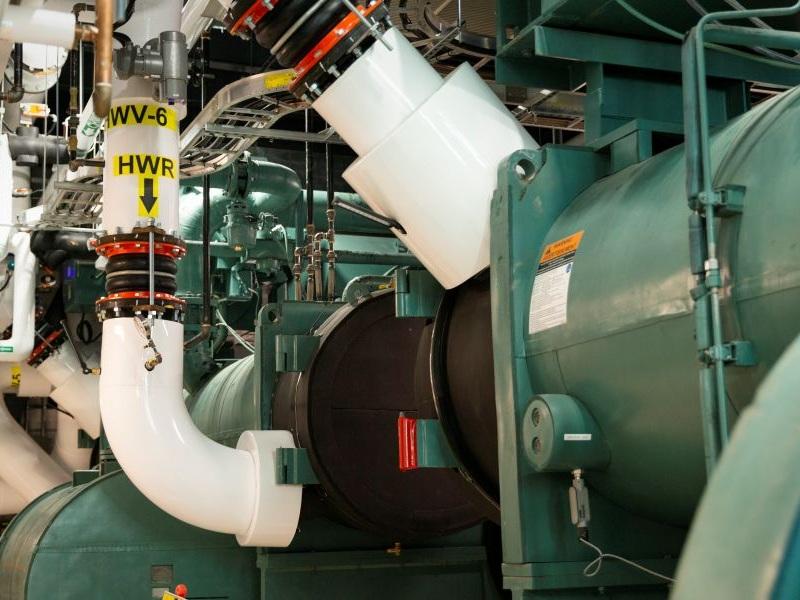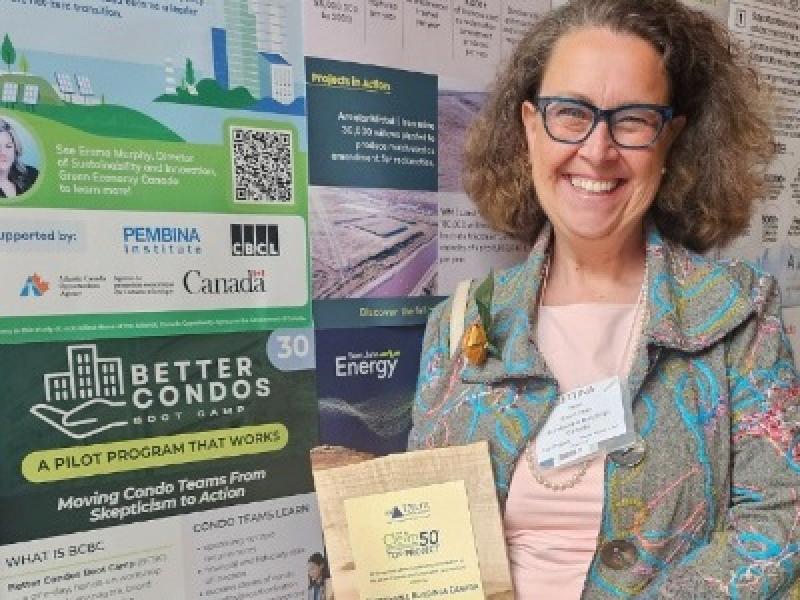
More than 700 buildings in B.C., including multifamily and commercial buildings, are getting support from the BC Retrofit Accelerator to identify and execute upgrades to reduce their carbon footprint and to make the buildings more comfortable.
The program, led by the Zero Emissions Innovation Centre (ZEIC), launched about a year ago.
The ZEIC itself started in 2021 and the retrofit accelerator program emerged as one of a number of building decarbonization programs, Roberto Pecora, director, building decarbonization with ZEIC, said in an interview.
The non-profit accelerator program functions with contributions from Metro Vancouver, Natural Resources Canada and the Ronald S. Roadburg Foundation. The accelerator provides its support free of charge.
"It's a significant initiative, and it's really meant to fulfill a need — a gap — that we identified early on . . . for support of decarbonized buildings, whether it's multi-family buildings . . . or commercial buildings," Pecora said.
The accelerator channels applicants into four categories: commercial buildings, market rental buildings, non-profit housing and strata-owned condo buildings.
"A big part of this was there were a number of . . . disjointed pilots, or different pilots for different sectors," Darla Simpson, senior manager, BC Retrofit Accelerator, said. "When we did a market scan, we realized that we could do better together, so we could stop some of the duplication, we could learn from each other, and we could do this better and faster if we had a more coordinated effort."
Accelerator involves planning, coaching and support
The accelerator requires building owners or managers to apply to a program stream. Then, it will co-create a decarbonization plan, receive coaching for the project and implement the project with expert support. Those supports can include identifying technology and financing options, and gaining support with procurement and implementation.
Pecora said the program covers the whole of B.C. and includes partnerships with BOMA B.C., the B.C. Non-Profit Housing Association, the Aboriginal Housing Management Association of B.C. and others.
"The program is only a year old (and) we have 700 buildings in the program across the province all the way from Northern B.C. down to where we are in Metro Vancouver," Pecora said. "There is clearly a need for support."
The accelerator focuses on using technologies like heat pumps, EV chargers, electric water heaters and distributed renewable energy such as solar photovoltaic systems for on-site electricity generation.
At this stage, the accelerator has provided several opportunity assessment reports to program participants. These are typically plans, Pecora said, that highlight opportunities to overlay decarbonization projects onto an existing capital project or renovation.
Cooling help has been a top request

Simpson said the team is working with a strata organization in Burnaby that had been putting off a number of projects at its building. "They had overheating issues on one side of the building. In particular, they had some water ingress issues; the roof was leaking. They just didn't know where to start."
The team worked with the strata to come up with a list of priorities and a plan that was staged over time to ensure their strategy made sense, long-term. "We just presented the opportunity assessment to them, and so it's back to the strata to decide the next steps," Simpson said.
One of the most common requests for support is to find efficient ways to cool buildings and spaces, Simpson said.
"Folks are really worried about overheating, and it's a common . . . problem in all of the sectors. And so, electrification, reducing our carbon emissions, and adding cooling, they go together so well, that just is (a) great opportunity to have two wins at once."
Pecora said building operators that want to update their domestic hot water system is another common project, given its complexity as compared to adding a heat pump to cool a space.
To get started, Pecora said building owners or strata leaders should check out the accelerator website to determine their category and the type of support they could use, and to get in touch.
"Soon after that, you'll get a call or from an individual that has a certain expertise in that field," he said. "It's a hand-holding service . . . we're boots on the ground."










